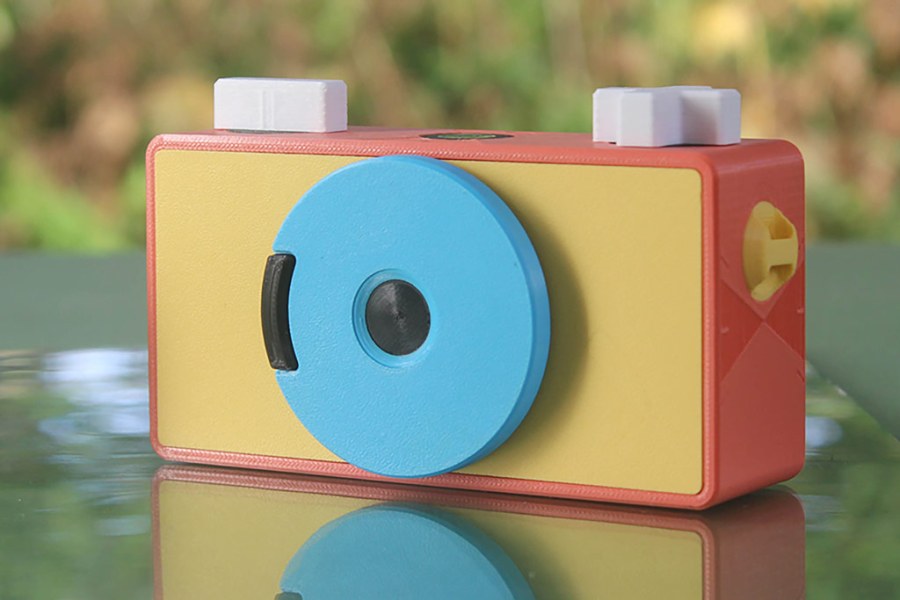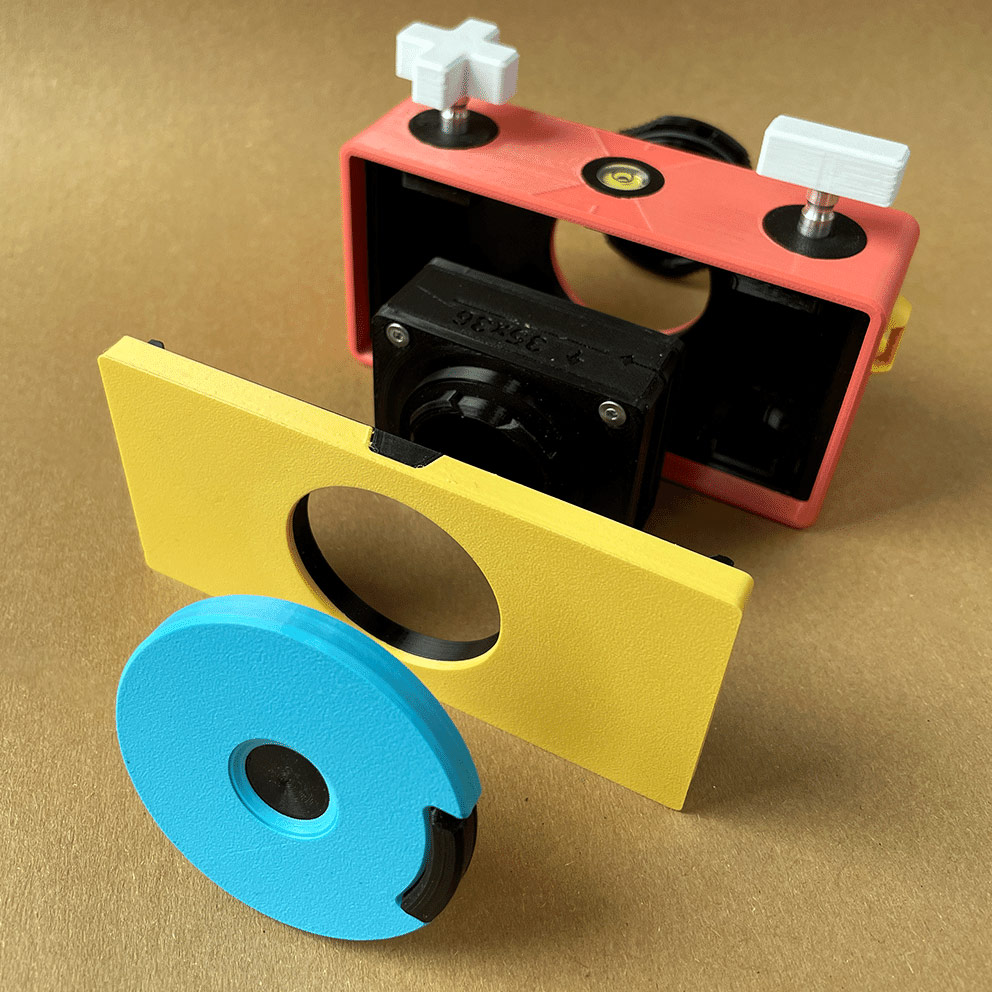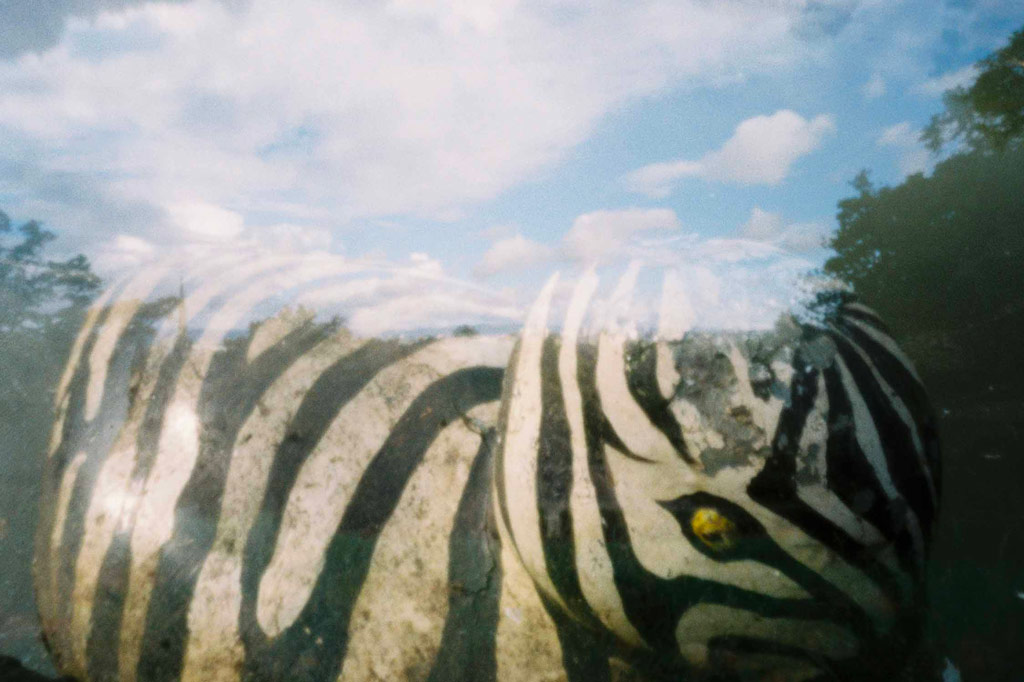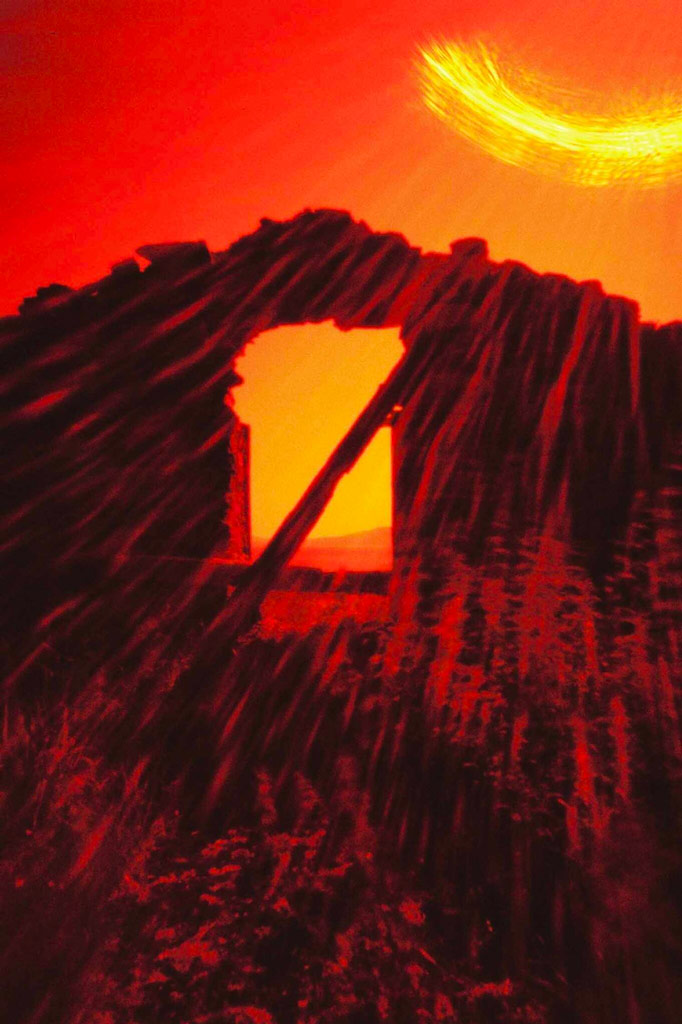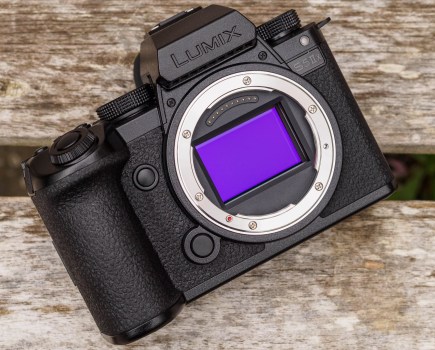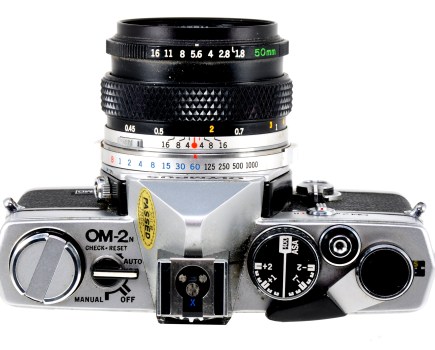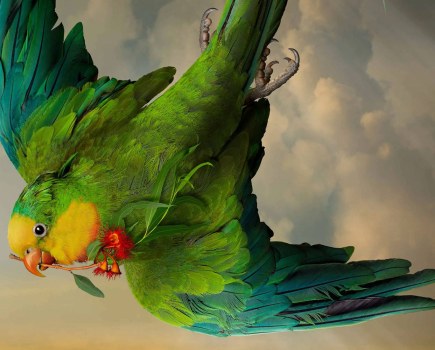Scottish camera maker Finite Industries has announced its first pinhole camera, the fi35. It is compatible with 35mm film and features a unique modular system that allows you to change pinholes, film planes, frames and bodies to get the most out of your film photography. The camera comes in bright colours and is designed to ‘bring a smile to the face of photographer and subject alike’.
The fi35 is described by Finite Industries as a versatile and fun camera for beginners and professionals alike. The modular design opens up a range of possibilities for experimentation, allowing you to fit two pinholes on each side of the camera to create double exposures, combine the twin pinhole and twin frame and create two images in one 6×4 photograph, shoot red-scale, or load your film to shoot sprockets.
Manufactured with sustainability in mind, the camera is 3D printed in small batches using recycled plastic. It can be fully disassembled so you can easily replace parts, furthermore, all parts can be reused. The first fi35 cameras will be launched on the Finite Industries website later this month and will be available from £125.
From Finite Industries:
Summary
- Scottish camera maker Finite Industries are launching their first camera this November.
- The ‘fi35’ camera is 3D printed in Scotland and designed to have a low environmental impact.
- The camera is built on a modular system so that different pinholes, film planes, frames and bodies can all be interchanged within a common system.
- Modularity means that photographers can experiment with redscale, tilt shift, double exposure and more within one camera
Scottish camera maker Finite Industries are launching their first camera this November. Ahead of the launch they are sharing some details on what makes their modular camera system special.
The Finite Industries modular system allows photographers to create a variety of images with one simple and versatile camera. Standard fixings and a symmetrical design means that different pinholes, film planes, frames and bodies can all be interchanged within a common system. The current camera is compatible with 35mm photographic film. A larger version which will use 120 film is currently being prototyped.
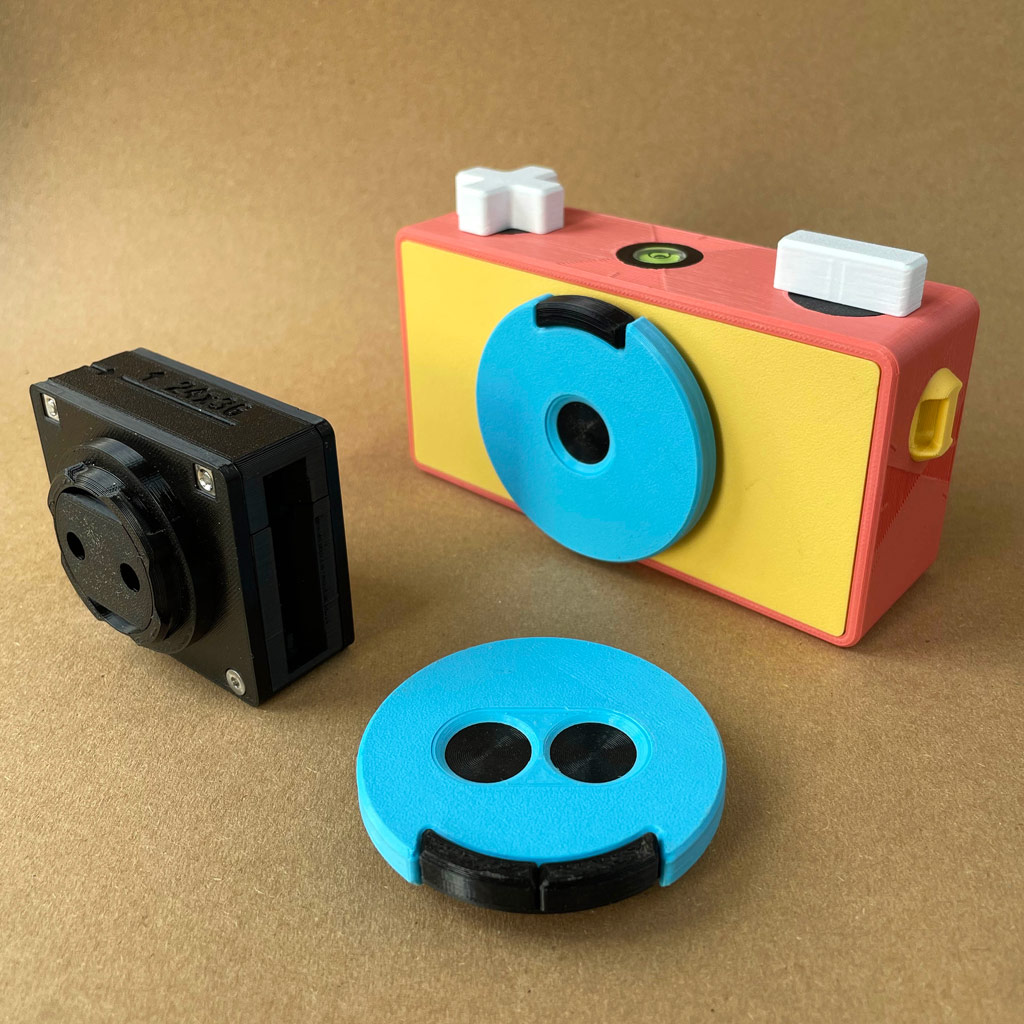
The standard camera body equipped with a standard pinhole, in front twin pinhole and twin frame. Photo: Finite Industries
The cameras are designed to have a low environmental impact by enabling easy disassembly and replacement of all parts if necessary. This also means that all the materials used can be recovered and then reused or recycled. The camera parts are made from recycled materials where possible and no materials are permanently joined to each other. This isn’t perfect but it can prolong the life of the cameras and help keep the materials in circulation.
The bold shapes and bright colours are designed to bring a smile to the face of photographer and subject alike. The cameras are a reminder to find joy in the act of making photographs.
The cameras will be available to buy from: www.finite.industries
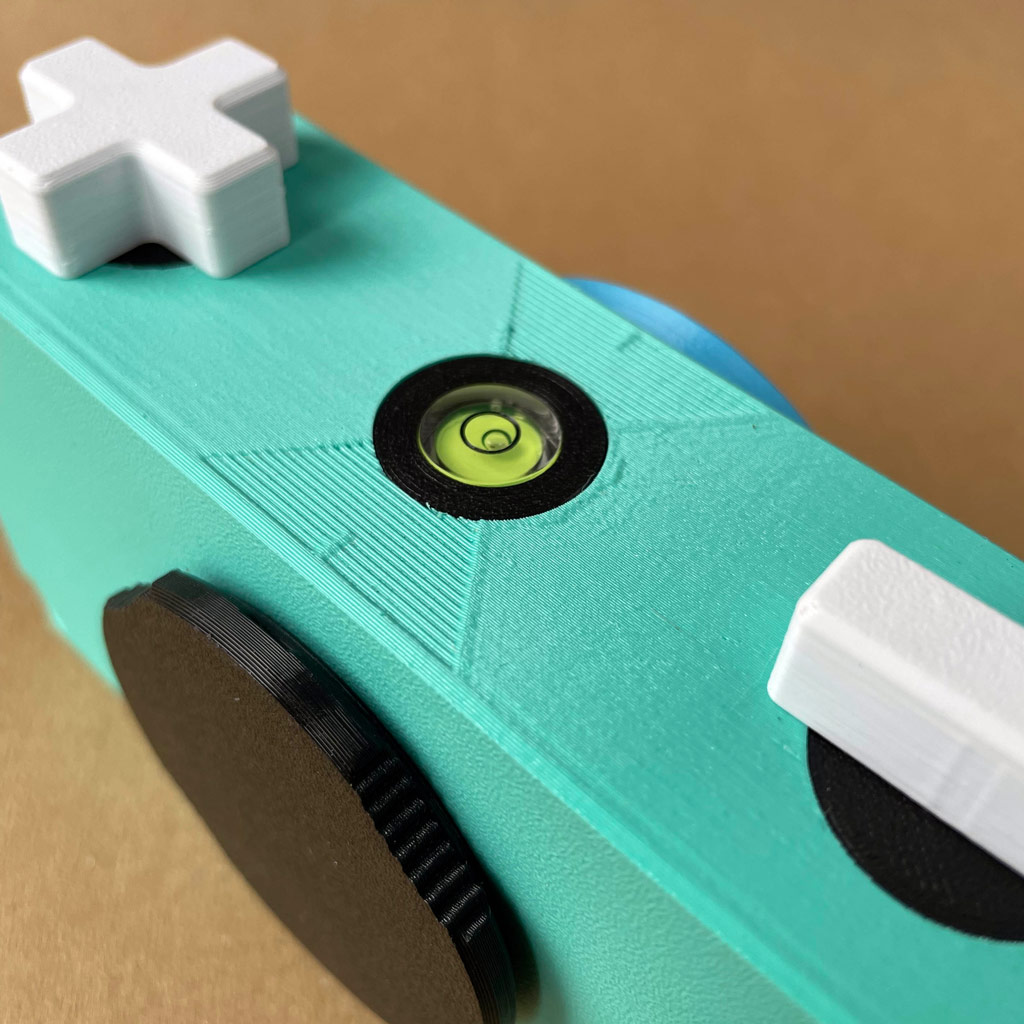
The camera body features a bubble level on top and a standard 1/4″ tripod mount on the bottom. Photo: Finite Industries
Nils Aksnes founder and designer at Finite Industries says:
“The versatility of our modular system means this is a camera for all: whether you are looking for your first pinhole camera or keen to experiment with new techniques in your photographic art.”
“Reducing a product’s impact is crucial as we face up to the climate crisis and biodiversity loss. Repair, reuse and recycling are a key part of the Finite Industries camera design. This is a benefit to both the photographer and the planet”
About
Nils Aksnes is a designer and photographic artist with over a decade of experience developing products for other people. Nils now develops his own products as Finite Industries.
In 2021 Nils received support from Analogue Wonderland through their Film Photography Community Fund. This support enabled several prototype cameras to be built. Nils invited members of the film photography community to test the prototypes and provide feedback. The process of testing and feedback from artists and photographers was key to the development of the modular camera.
Finite Industries 3D print their cameras in small batches from their HQ in Argyll on the west coast of Scotland.
Related content:
- Top tips for how to get creative with analogue film photography
- Analogue Wonderland announces limited edition WonderPan 400
- How to make a pinhole camera and take photos in 10 steps
- How to develop black and white film at home
Follow AP on Facebook, Twitter, Instagram, YouTube and TikTok.

